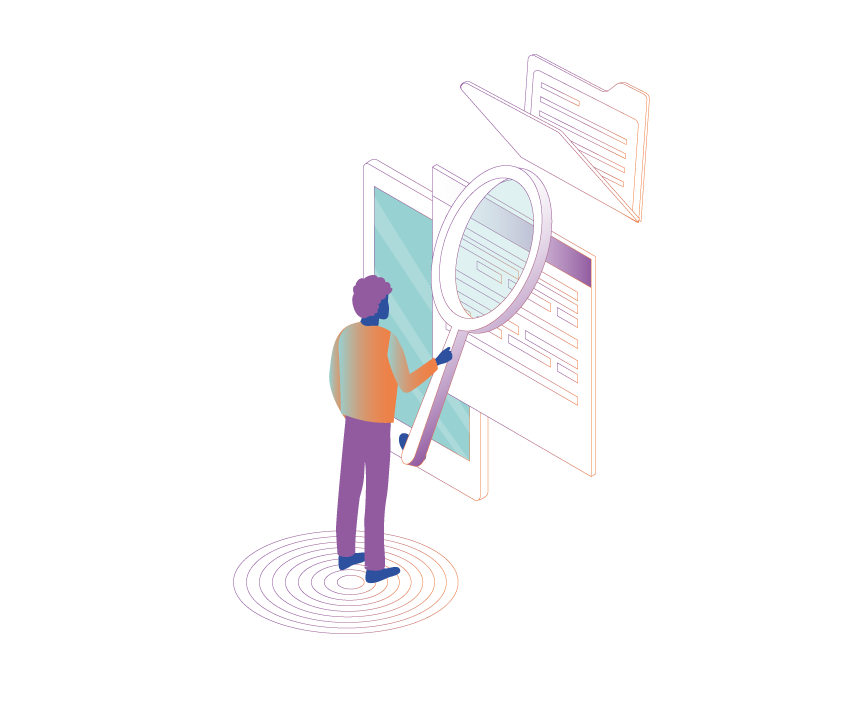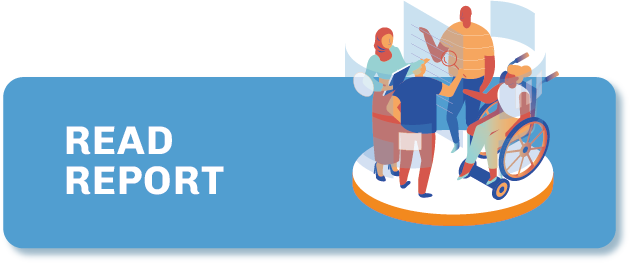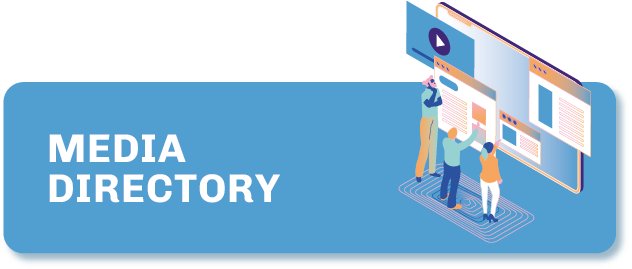Criteria for inclusion
Find our criteria and recommended best practices here. As we sought out media for this project, we prioritised independent, digital native media organisations that serve the public interest through news, investigative journalism and fact-checking.

The goal of Project Oasis is to support independent media in Europe by bringing greater visibility to digital native media organisations and to uncover new insights about the trends, opportunities, and challenges in this growing market sector.
To do that, we sought out and prioritised independent, digital native media organisations that serve the public interest with news, investigative journalism, fact-checking, or other information services. Special attention was paid to finding new voices and media that cover news deserts and underrepresented communities.
This directory does not represent a final, exhaustive list of all independent digital media in Europe. It is a living database, which we hope to continue to update and develop over the coming years. Our goal is to provide a foundation for identifying new kinds of media that serve the public interest while not excluding media that are so new or so innovative that they do not meet all of the traditional criteria other organisations may use in these types of assessments. We welcome feedback as this project evolves and expect to continue to refine and build on these criteria and recommendations in the future.
Although we have prioritised the inclusion of media that meet all of our criteria and recommended best practices, we did make exceptions when adhering to these criteria could cause legal, physical or other threats to the founders, leaders, editors, or journalists of these organisations.
Based on our research, the organisations we focus on in this study do not always have all of the structures, policies and elements that are usually associated with public service media. For that reason, our criteria for inclusion in this directory are not as strict as the criteria many organisations might use when providing grants or other support for independent media.
To complement the criteria included in this document, and encourage generally recommended best practices, we also include a list of recommendations (see below), such as publishing a mission statement, a comprehensive ‘about’ and ‘team’ page, as well policies regarding corrections, editorial ethics, and related documents on their website.
Digital native: Organisations should be digital native media, meaning they were started online and they publish all (or at least most) of their content in a digital format. Additionally, they must have published content in the last six months.
We include some organisations that publish print products as part of their content offering (for example, books, quarterly magazines, special or one-off edition bulletins or newspapers, etc.), as long as they still publish most of their content online and meet all of our other criteria.
Original content: The majority of the content should be original and published by the media organisation, in any or all languages that are relevant to the audience(s) the organisation is serving.
Publications that aggregate, translate or curate all or most of their content from third party sources or information services were not included.
Content that serves the public interest: The content published should serve the public interest. Organisations may cover a wide range of topics, including news, sports, culture, health, opinion, business, and other topics of interest to their audiences. Content can be shared in any digital format or genre.
Public interest content informs members of the public about the issues that shape their lives, without promoting or serving a political, commercial or factional interest. Public interest content is often recognized for encouraging and informing public debate and dialogue across society, holding those in power to account in the public interest. Public interest content also tends to be inclusive and diverse; it questions and challenges discriminatory societal norms, stereotypes and taboos.
Editorially independent: There should be no third-parties that fund, appoint or control in direct or indirect ways the editorial agenda of the outlet.
Media organisations that are owned by corporation(s), government entities or religious / church entities that control the editorial agenda were not included.
Non-partisan: The media organisations in the directory should be editorially independent, regardless of ideological position. Digital outlets that are entirely dependent on revenue from the state or from a political party were not included.
Transparency: For an organisation to be included in the directory, we had to be able to identify the founders, owners and directors and include their names in the publication’s profile.
Please note: If a media doesn’t have an ‘about’ page on their website where these names are published, that does not make them ineligible, as long as they are willing to disclose the names of their founders, owners and directors with the researcher during the interview.
Business structure: We accept organisations in all states of formation, including for-profits, non-profits, and hybrid organisations (which combine non-profit and for-profit entities).
In some cases, we accept organisations that are not formally registered or incorporated, as long as they meet all of our other criteria.
Blogs and newsletters: We only include blogs or newsletters that produce content of journalistic value that serve the public interest. We also require that blogs and newsletters be published on a regular basis and meet all of our other criteria.
Social media natives: Media organisations that only publish on social media, such as those on YouTube, Facebook, Instagram, or Twitter, may be included if they share news and other original content that serves the public interest and they meet all of our other criteria.
Projects or publications founded by universities or civil society organisations: Digital media initiatives produced by public and private universities or civil society organisations may be included if they meet all of our other criteria, can demonstrate they operate with editorial independence from the parent organisation, and publish content that has value to audiences beyond the university or parent organisation.
- The organisation publishes its mission statement. Mission statements should include ‘why’ and ‘how’ an organisation exists and achieves its purpose.
- The outlet features a comprehensive and updated ‘about us’ page on the website, providing clear information and contact details for its founders/directors, team members and contributors.
- The organisation operates in accordance with set policies that guide its activities and conduct, and these policies are available on its website. These may include one or more of the following: editorial policy, code of conduct, data privacy policy, ethics policy, transparency statement, complaints policy, whistleblower policy, sexual harassment or institutional violence policy, and diversity policy.
- The organisation publishes information about its annual revenue, in the form of an annual summary, statement or report.
- The organisation publishes the number of members or subscribers.
- The organisation publishes the names of its donors, partners, and other supporters, especially those who make significant contributions.

